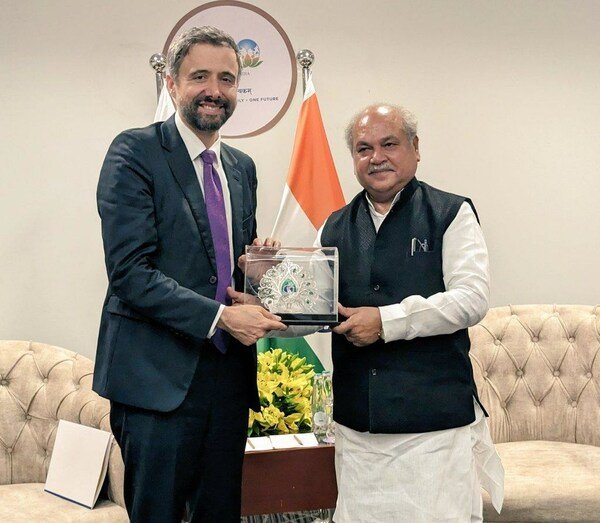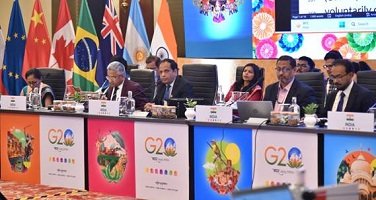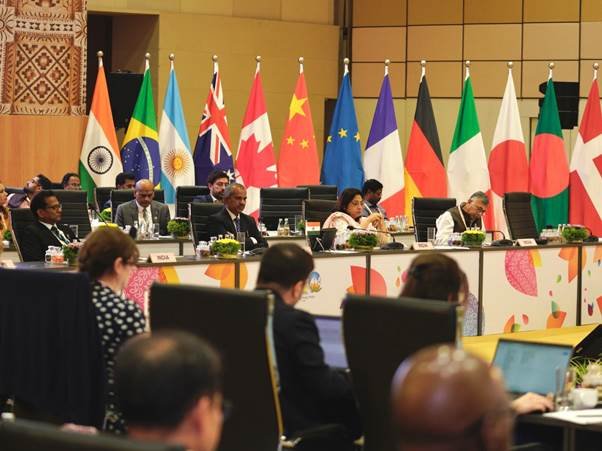Brazil and India to enhance agro-commercial opportunities through sustainability
Shobha Karandlaje interacts with the Brazilian delegation led by Carlos Favaro
Shobha Karandlaje Minister of State for Agriculture and Farmers’ Welfare interacted with the Brazilian delegation led by Minister of Agriculture, Livestock and Food Supply Carlos Favaro. At the outset, Shobha Karandlaje extended a warm welcome to Carlos Favaro.
MoS Shobha Karandlaje showed gratitude for supporting the Indian Presidency during the G20 Agriculture Working Group Meetings and expressed regret for the Minister’s absence and inability to attend the G20 Agriculture Minister’s Meeting at Hyderabad. She expressed happiness that the visit would further strengthen India-Brazil’s rapidly growing cooperation in the agriculture sector. She said that both countries have a flourishing bilateral agriculture trade, and further cooperation can be strengthened in food processing, agro-industry, and agricultural research and development.
Shobha Karandlaje further said that the demand for avocados is growing in India, which provides an opportunity for India to import avocados from Brazil. She assured that India will extend its full support to Brazil for a successful G20 Presidency. She also expressed happiness that Brazil is establishing a task force, the Global Alliance against Hunger and Poverty, which aligns with the India Presidency’s Deccan High-Level Principles on Food Security and Nutrition align with this task force.
Carlos Favaro emphasised that Brazil and India face similar challenges in the agricultural sector, and hence, both countries can find standard solutions to mitigate these challenges. The fight against hunger is a paramount focus for Brazil, and they expressed a desire to collaborate with India through technology transfer, knowledge sharing and cooperative efforts with India to fight hunger.
Brazil anticipates receiving India’s specific interests and demands, which can be addressed at the institutional level by both countries. The promotion of bilateral trade was highlighted by Brazil’s willingness to open its market to various agricultural products and expedite Sanitary and Phytosanitary (SPS) related negotiations to facilitate trade.Brazil’s delegation extended an official invitation to India for the forthcoming 2024 G20 presidency.
Shobha Karandlaje interacts with the Brazilian delegation





